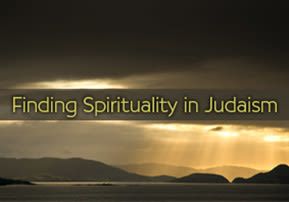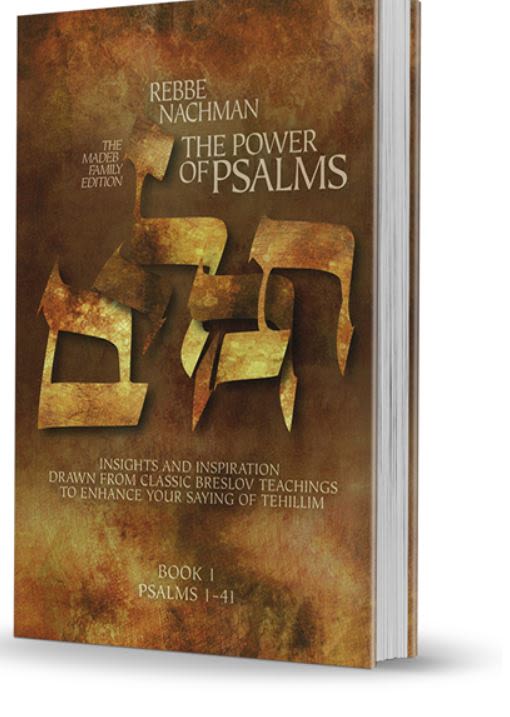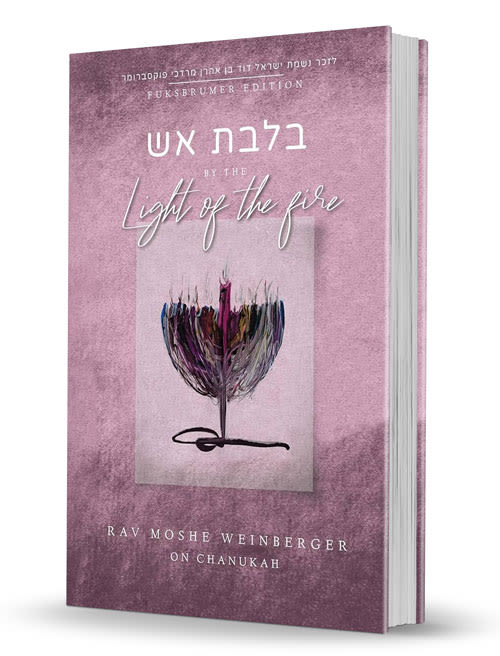
Finding Spirituality in Judaism
Don’t be satisfied with not knowing. You are a spiritual being in your essence, and you deserve to know more about your soul and your true purpose in life…

Growing up as a “traditional” Jew, I never questioned my Judaism. Even though I only had Shabbat dinners and didn’t go to services unless it was Rosh Hashanah or Yom Kippur, I was a Jew and that was that. What more did I need to know? Even though I was still a young child, I felt I was doing my part as a good Jew by eating matzah ball soup and schnitzel on Friday night. As a teenager, the fact that I went out after dinner did not conflict with or detract from my Jewish identity. To me, a Jew was a Jew was a Jew. I still hold true to this belief today, but now I understand that Judaism has a world of spirituality which I never knew from growing up.
Over the past several years, my spiritual evolution has exposed me to teachings and wisdoms that are not only mystical and deep, but practical as well. In my pre-observant life, I used to think that the religious Jews  were living an antiquated life in a bubble. Why weren’t they connecting to the “real world”? Why did they dress so different? Why did they bother with all of their rules and restrictions? How could they live without shrimp cocktails and Burger King? Didn’t they know what they were missing?? Well, life is funny…I have morphed into one of “those people”, not because I was looking for less fun in my life, but because I began to get a glimpse of the deep wisdom within the Torah.
were living an antiquated life in a bubble. Why weren’t they connecting to the “real world”? Why did they dress so different? Why did they bother with all of their rules and restrictions? How could they live without shrimp cocktails and Burger King? Didn’t they know what they were missing?? Well, life is funny…I have morphed into one of “those people”, not because I was looking for less fun in my life, but because I began to get a glimpse of the deep wisdom within the Torah.
To the average layman, the Torah is a historical document that describes major events in history, from the origins of our universe to the birth of man. It also has, for most of us, way too many rules- six hundred and thirteen, to be exact. So what would drive me to give up my life of “ignorance is bliss” and trade it in for modest dress and no TV? I know what you’re thinking: did she just say “no TV”? Is she crazy? How does she stay informed?? Ah, yes, these are questions I used to ask as well. To begin to see the spiritual aspect within Judaism we must first get to know the father of monotheism, Abraham our Forefather. What made him special? In a time and culture where everyone was practicing idol worship, Abraham was the first person to question and ultimately condemn such a practice. He did this when he was only three years old. Incredible. How could anyone have the intellectual capacity to understand such a concept at age three? His father, Terach, was a big idol dealer, probably the biggest in town. Abraham used his quick wits to talk anyone who came into the store out of purchasing an idol. Why did he go against the idol movement? Instead of worshiping wooden statues he decided to connect to the source of all creation, which is The Creator. This is the first big spiritual concept in Judaism. Everything in existence is created by The Creator. As a Jew, I like this concept because why go to the middle man for a problem when I can go to The Boss?
A person who acknowledges everything is created by The Creator is making a big statement in his life. He realizes that there is a source to all that he sees and experiences in the world, and if there is a source then there must also be a purpose. Many of us question whether life has an ultimate meaning or purpose. The Torah clearly tells us that there is a purpose to life. This is the second big spiritual concept in Judaism. There is a deep meaning and purpose to life, and each person has his own individual role to play in life. When you are inclined to question if God had a reason for doing something, ask yourself if you have ever done anything without a prior thought or intention. We don’t do anything without a bottom line in our heads. No matter what our actions are, our agenda is always the same. What’s in it for me? How will I benefit from this action? Although these questions may seem selfish, they can actually work to our benefit within the realm of spirituality. The sages state, “It is better that a person were never born than if he lived his life with no consciousness.” What does this mean to us? This statement is telling us that we should always have an ulterior motive for doing something, and this motive should be to create more positive energy in the world.
Many people argue that religion is devoid of consciousness. This is not true. Each law and restriction is based on Divine Wisdom, and we can never truly know the deepest meanings of them. However, we can understand each law on our own spiritual level. You may say, “What is the point of doing something if I don’t understand it?” Yes, I used to feel this way, too. Well, this is the great thing about the time we are living in. Today, spirituality is available to anyone who wants to know more about life and Judaism. Kabbalah, the deep esoteric and mystical aspect of the Torah, is being taught in layman’s terms by all types of Jewish organizations. They teach it in a practical way that helps us understand the spiritual dimensions of our lives and how to use the Torah to improve our lives on all levels. You do not have to be religious to study Torah. You simply need to have the desire to improve your life.
Another spiritual concept in Judaism is reincarnation. The Torah and other Jewish texts such as the Holy Zohar are full of references to reincarnation. Judaism is the original proponent of reincarnation and provides countless examples as proof that it is a fact of life. Since the explanation for such examples are too complex for me to review in this article, I will present to you a thought-provoking point. Have you ever met someone with whom you instantly felt a connection? What about someone who rubbed you the wrong way even before they said, “Hello”? Incidentally, this happened to me with my husband- I couldn’t stand him when we met. So what did I do? I married him, of course. What about children? Don’t they seem to come with their personalities pre-packaged? Think about it.
Let’s look at the Torah itself. In the book, The Bible Code, Professor Eli Ripps develops a computer program which allows all types of letter combinations to be created using number spacing. When different spacing was implemented, words and sentences started to appear using crossword puzzle circling techniques. This shows on the simplest level of deciphering that the Torah is indeed more than just a storybook. Actually, religion uses the Torah as a guide to life. Many of us may think we are conscientious enough of our behavior that we don’t need such a guide. I then ask you this question- have you ever tried to drive a car without traffic laws? What do you think would happen if you did? The only chance you have at arriving safely at your destination is if you follow the traffic rules. It is the same with life. How many times do we realize in retrospect that we have made the wrong decision? How many times have we gotten ourselves into personal and/or professional situations that we later came to deeply regret? That is why we have the precepts- they advise us on what we should and shouldn’t do.
Allow me to elaborate on this statement. This is not a concept of reward and punishment; it is not, “If you do this, God will reward you, and if you do that, God will punish you.” This is one of the deeply embedded misconceptions we have of religion. Again, the Torah is not to be taken only on a literal level. There are countless levels of inference, and we have a limited capacity to grasp the full depth of knowledge and wisdom contained within the Torah. The stories in the Torah are also allegories and lessons that we can apply to our daily lives. For example, Iyov, or Job, was a perfectly righteous man, yet his life was extremely harsh and difficult. Why would God let such a good man suffer so much? It turns out that in a past life Iyov was actually Terach, who was the IKEA of idol dealers. Many times our limited five senses will convince us that we are undeserving of a particularly tough situation that may have occurred right after we have done something truly sharing. We wonder why we are being punished after we have done something so great. Now we can see from the example several things. First, this is an obvious example of transmigration of the soul. Second, we see that life is not linear according to our expectations. We live our lives expecting that we will see the effects of our actions all in one lifetime, and we wonder why “bad” things happen to us undeservedly. Now we can see that each lifetime is like one chapter in the book of our complete lives. We don’t know what happened last chapter or what stage of the book we’re in.
We have an opponent in life and most of us don’t even realize it- which brings me to another concept: free will. Do we have free will or don’t we? What a deep question. You can debate this for hours with anyone at the coffeehouse. When you add the first concept of reincarnation to the second concept of life being a small chapter in a book, you come up with the answer of free will. If we understood what we did wrong in a past life and we saw that the tough times we were going through today were a result of our prior actions, where would our free will be? It wouldn’t. We would have no choice but to be perfect; and then what would be the purpose of our existence? The point of this article is not to put all of life’s deepest answers in a nicely gift-wrapped package. Anyways, I am far from knowing all of life’s secrets. The purpose of this article is to inspire you and motivate you to look for answers for yourself. Don’t be satisfied with not knowing. You are a spiritual being in your essence, and you deserve to know more about your soul and your true purpose in life. Thankfully, today there are a number of different classes on spirituality and Judaism that will help you expand your understanding of life and thus help you to improve the quality of your life. The bottom line is that everyone wants to be happy and fulfilled. Don’t you think it’s time you used the guide that was available to you since the beginning?
If you would like to read more about the connection between Torah and science, a fascinating book is The Coming Revolution by Rabbi Zamir Cohen. If you would like to know more about the deep level of connection we can attain with The Creator, please read In Forest Fields by Rabbi Shalom Arush.









12/15/2010
reward and punishment A lovely article. Just on one point Judaism differs: There IS in fact a very exacting Heavenly reward and punishment system in heaven. This is one of our 13 principles of faith. We may not be privy in this life to which of our actions have been rewarded or which have been forgiven, but in the next world we will be given a detailed list of all our actions and Heavenly accounting for them. This is probably the most contested issue: Why free will if there is punishment?